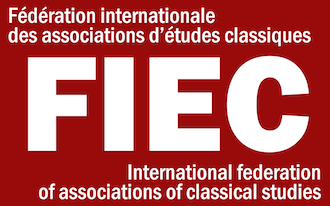This week, we would like to forward to you the following announcement issued by AIEGL (
Association Internationale d’Épigraphie Grecque et Latine):
Association Internationale d’Épigraphie Grecque et Latine):
"Dear Colleagues and Friends,
AIEGL will award two Géza Alföldy stipends in 2018: a Research Grant (€ 1,500) to support early career scholars in conducting epigraphic research abroad, and a Publication Grant (up to € 1,500) to provide financial assistance with the publication of a monograph on an epigraphic subject.
Géza Alföldy - Research Grant
AIEGL is pleased to announce the annual award of a Géza Alföldy Grant in the amount of EUR 1,500. The Grant is intended to support early career scholars in conducting epigraphic research abroad (including e.g. field study of inscriptions) for a period of one to two months.
Eligibility:
1. Applicants must be AIEGL members under 40 years of age.
2. The closing date for applications is 15 May each year; AIEGL will notify the winner of the
Grant within 30 days after the closing date.
3. Applications will be evaluated by a panel of 3 IIIhomines praemiis dandis, who are appointed
by the AIEGL Bureau from among the members of the Association.
4. The successful applicant will be required to send a report (max 300 words) to the AIEGL
Bureau within 30 days after the end of their stay abroad.
Applications should be submitted via email to the Secretary General, Dr. Camilla Campedelli
(campedelli@aiegl.org), and include the following:
1. CV (max 1 page)
2. Project description, including details of the host institution (max 3 pages)
3. Acceptance letter from the host institution OR official permit to conduct fieldwork (study of
ancient inscriptions on site, epigraphical survey, etc.)
4. Information on other bursaries received or applied for
Géza Alföldy – Publication Grant
AIEGL is pleased to announce the annual award of a Géza Alföldy Grant in the amount up to EUR 1,500. The Grant is intended to provide financial assistance with the publication of a monograph on an epigraphic subject (e.g. a revised PhD dissertation). The manuscript must have already been accepted by a publisher at the time of the application.
Eligibility:
1. Applicants must be AIEGL members under 40 years of age.
2. The closing date for applications is 15 May each year; AIEGL will notify the winner of the
Grant within 30 days after the closing date.
3. Applications will be evaluated by a panel of 3 IIIhomines praemiis dandis, who are appointed
by the AIEGL Bureau from among the members of the Association.
Applications should be submitted via email to the Secretary General, Dr. Camilla Campedelli
(campedelli@aiegl.org), and include the following:
4. CV (max 1 page)
5. Book abstract
6. PDF file(s) of the manuscrit submitted to the publisher
7. Acceptance letter from the publisher (including publication costs)
8. Information on other grants for publication received or applied for"


